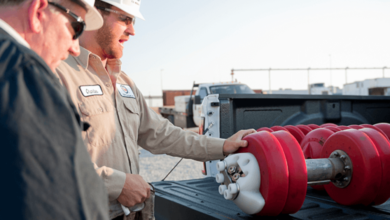If you thought going solar was just about the panels on your roof, you’re only seeing half the picture.
In 2025, solar panel laws are changing fast. From new utility rules to building permit tweaks and HOA policies, homeowners and businesses alike are navigating a whole new landscape. And if you want to lock in savings, avoid red tape, and get the most out of your solar investment, now’s the time to pay attention.
Luckily, you don’t have to figure it out alone. The right solar installers in cincinnati aren’t just technical experts; they’re also your guides through every local, state, and federal regulation that affects your system.
In this guide, we’ll break down what’s new in solar policy, what it means for your home or business, and how to make sure you stay ahead of the curve,before these changes cost you time, money, or incentives.
What’s Changing in Solar Panel Laws in 2025?
Solar is booming across the U.S., and that means lawmakers are stepping in to regulate, streamline, and in some cases, restrict it. Here are the key changes you need to know:
Updated Net Metering Policies
Net metering allows you to earn credit for the excess electricity your system sends back to the grid. But in 2025, some Ohio utilities are adjusting how much they’ll pay you for those credits. In some cases, new homeowners may get lower compensation than those who installed solar earlier.
HOA and Local Ordinance Adjustments
While Ohio has been relatively solar-friendly, some neighborhoods and HOAs are starting to tighten rules around where panels can be installed (e.g., only on rear-facing roofs). Don’t worry, solar panel laws still protect homeowners in many cases. But it pays to know your rights.
Permit and Interconnection Streamlining
On the upside, 2025 has seen progress in speeding up solar permitting. Cities like Cincinnati are digitizing processes, and more utilities are offering same-day interconnection approvals for qualified systems.
Step-Downs in Incentives
Though the 30% Federal Tax Credit is still available in 2025, it’s slated to decrease after this year for some commercial installs. Acting soon could mean thousands more in savings.
Why These Changes Matter for Homeowners and Businesses
So, what does all this mean if you’re looking to install solar?
- Faster action = better incentives. Delay too long, and you might miss out on top-tier credits or net metering rates.
- Rules vary city by city. What’s legal in Loveland might not fly in Westwood. That’s why it’s smart to partner with experienced solar installers in cincinnati who know the lay of the land.
- Future-proofing your install matters. Choosing a system today that’s ready for tomorrow’s compliance rules gives you long-term peace of mind.
How Solar Installers in Cincinnati Help You Navigate It All
The legal stuff may feel like a headache, but not when you’ve got the right partner.
Here’s how a trusted installer helps:
- They know Cincinnati’s solar panel laws inside and out.
From zoning restrictions to utility contracts, local experts can guide you through every step. - They handle your paperwork.
Permits, HOA approvals, tax credit applications, it’s all taken care of. - They design with compliance in mind.
Smart installers ensure your system won’t violate future shading, positioning, or fire code regulations. - They future-proof your investment.
By using durable tech and scalable designs, you’re not stuck when laws evolve in the next 5–10 years.
How to Stay Ahead of Legal Changes (Without Doing the Homework)
1. Don’t DIY the legal part
It may be tempting to browse forums or wing it with an online quote, but that can lead to mistakes. Licensed solar installers in Cincinnati offer tailored advice and ensure your setup is 100% legal and optimized.
2. Ask about current and upcoming law changes
During your consultation, ask your installer:
- How will the upcoming utility policies affect me?
- Is my HOA solar-friendly?
- Are there fire code or setback rules that apply to my property?
3. Check if your installer handles paperwork
A quality provider should help you:
- Apply for federal/state incentives
- Submit net metering applications
- File for permits
- Schedule inspections
4. Look for NABCEP Certification
This certification is the gold standard for solar pros, especially when interpreting changing legal and technical requirements.
Cincinnati Case Study: Why Local Expertise Beats Online Quotes
Meet Jake, a homeowner in East Walnut Hills. He nearly signed a contract with an out-of-state solar company offering a sweet online deal. But when he brought the quote to a local provider, he learned:
- The design would’ve violated his HOA’s rooftop visibility policy.
- It didn’t account for net metering limits in his utility zone.
- He would’ve missed out on a local energy rebate only available through certified solar installers in Cincinnati.
Jake went local and now earns $200+ in credits every year, with a fully compliant, permit-approved system.
It’s Not Just Homeowners: Why Businesses Must Act Now Too
Commercial solar is also booming, but the regulatory environment is even more complex. From depreciation tax rules to commercial zoning laws, businesses need specialized support.
If you’re a landlord, warehouse owner, or retail manager, a Commercial Solar Installer can:
- Help you leverage bonus depreciation before it changes
- Manage utility interconnection timelines
- Align your project with ESG reporting requirements
With commercial incentives slated to step down in 2026, 2025 is the perfect time to lock in ROI.
Common Legal Misconceptions (Busted)
Myth 1: HOAs can ban solar completely
Truth: In many cases, solar access laws override HOA restrictions. A good installer will help you push back, legally.
Myth 2: Net metering is guaranteed forever
Truth: Some policies are sunsetting. Lock in higher rates by acting early in 2025.
Myth 3: Permits are optional
Truth: Skipping permits can void your insurance, create safety risks, and result in fines.
Read Also: The Role of AI Face Swap Technology in Virtual Influencers
Final Thoughts: The Law Shouldn’t Stop You, It Should Empower You
Here’s the truth: solar panel laws are evolving because solar is growing. That’s a good thing.
But to avoid headaches, delays, and missed incentives, you need a partner who keeps you ahead of the curve,not just on panel performance, but on policy too.
So if you’re thinking about going solar this year, don’t wait for the next change to catch you off guard. Team up with certified solar installers in cincinnati who will help you do it right legally, efficiently, and affordably.
The sun isn’t slowing down. Neither should you.
FAQs
Q1: Will changing solar panel laws impact my current system?
Most new rules apply to future installations. But adding batteries or expanding your system later might trigger new permits.
Q2: Are there local rebates available in Cincinnati?
Yes, some utility providers offer limited-time rebates, especially for early 2025 adopters.
Q3: What happens if my system doesn’t meet updated fire codes?
A good installer will ensure your system is designed to meet (or exceed) all current fire safety regulations.
Q4: Can I install solar myself and skip permits?
Technically, maybe, but it’s not recommended. You could violate solar panel laws, lose incentives, or fail inspections.
Q5: How often do net metering policies change?
They’re reviewed every 1–2 years. 2025 marks a key period of reform in many states, including Ohio.





